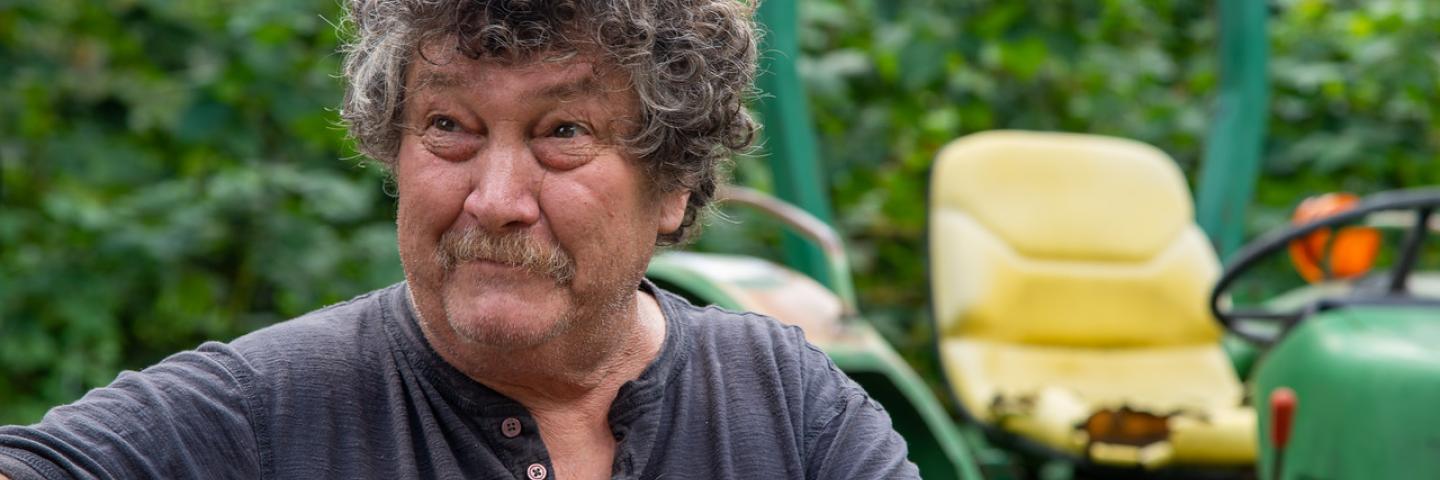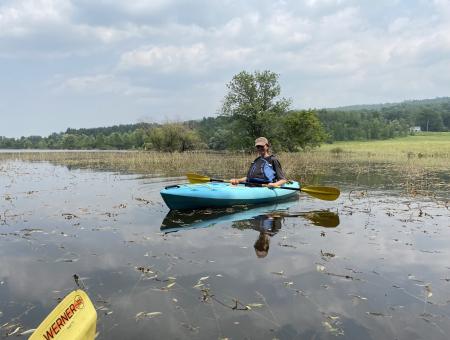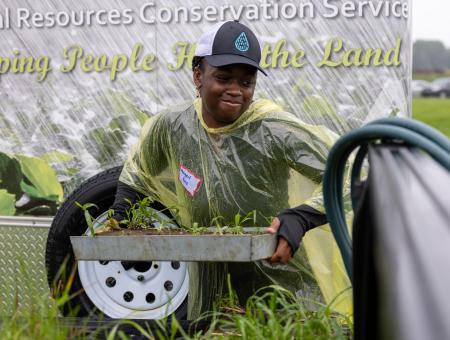
Highlighting the different aspects of Vermont's conservation community from success stories, cultural resources, and more.
Contents:
Cultural Resources
Cultural Resources are evidence of past human activity. These may include pioneer homes, buildings or old roads; structures with unique architecture; prehistoric village sites; historic or prehistoric artifacts or objects; rock inscription; human burial sites; earthworks, such as battlefield entrenchments, prehistoric canals, or mounds. These nonrenewable resources often yield unique information about past societies and environments, and provide answers for modern day social and conservation problems. Although many have been discovered and protected, there are numerous forgotten, undiscovered, or unprotected cultural resources in rural America.
When NRCS helps to fund easements to preserve land in perpetuity, one potential outcome is protecting the irreplaceable cultural resources located within the easement boundaries. The factsheet below describes what Cultural Resources are and why it is important to protect them. For more detailed information regarding NRCS Cultural Resource protection procedures, visit the electronic Field Office Technical Guide, Section II, Cultural Resources.
When NRCS helps to fund easements to preserve land in perpetuity, one potential outcome is protecting the irreplaceable cultural resources located within the easement boundaries. Click here to read success stories about cultural resources protection and conservation easements.
Visit the national page to learn more
Vermont's Earth Team
At NRCS, we are very proud of our Earth Team Volunteers’ commitment to conservation. We want to take this opportunity to thank each of them for being a valued member of our conservation team. The Earth Team is the volunteer workforce of the Natural Resources Conservation Service NRCS and we are making a difference in every county in the nation.
NRCS partners with conservation groups and others to ensure private lands are conserved, restored, and more resilient to environmental challenges like climate change. Working side-by-side with farmers and ranchers, the NRCS identifies natural resource concerns, such as soil erosion and water quality issues, and develops unique conservation plans for restoring and protecting resources.
Earth Team volunteers are an integral part of the conservation partnership and each member takes pride in the fact that they maintain and improve our natural resources and environment on private lands.
The job of conserving our natural resources cannot be done by the government alone. We need your help
in reducing soil erosion, conserving our water and improving its quality, and developing pride in our country's natural resource heritage.
Anyone 14 years of age or older and interested in conserving our precious natural resources can be an Earth Team volunteer. You can volunteer part-time or full-time and work outdoors or in a local NRCS office. You can volunteer as an individual or form or join a group. We have opportunities in every state.
Please contact a local service center or visit the NRCS Earth Team website if you have any questions about how to volunteer.

Earth Team Volunteer Spotlight: Tess Overstreet
Tess Overstreet spent a week volunteering with the NRCS Earth Team in July 2023.

Pathways to Success
Being a Pathways intern allows students who are still in college to bypass those requirements to become an intern, which in turn gives them time and understanding to complete specific college credit requirements they need to have before they can become full NRCS employees.

